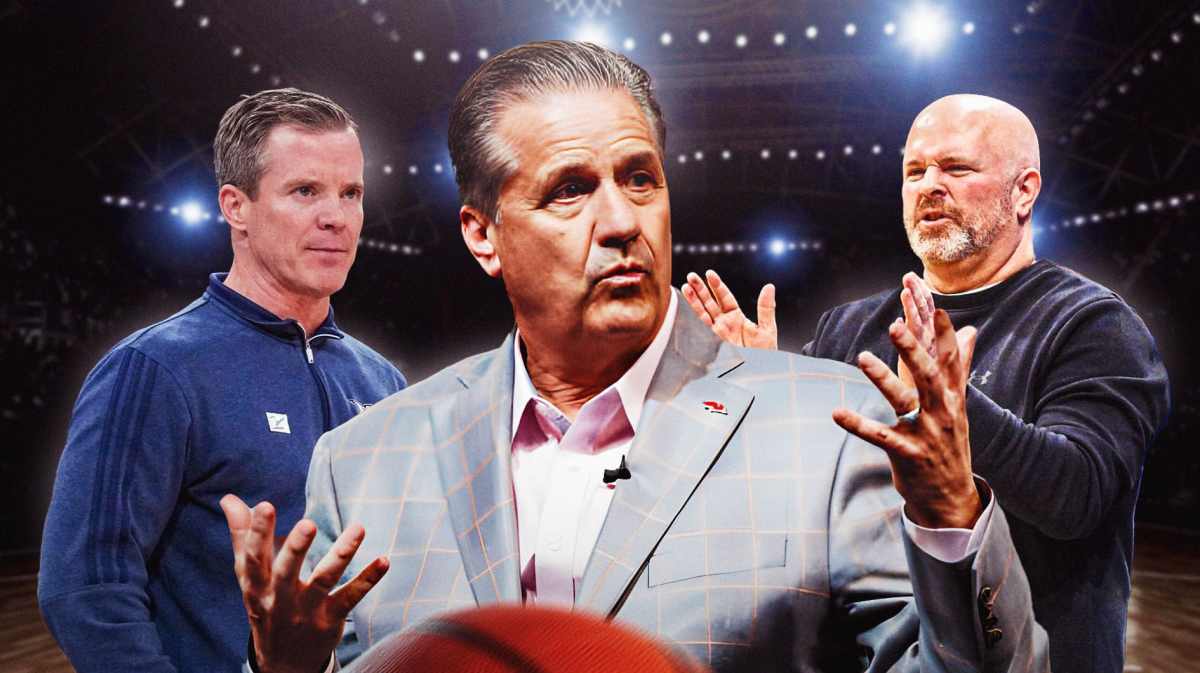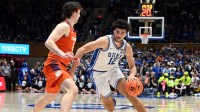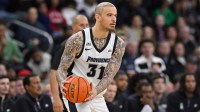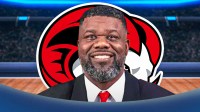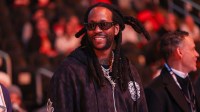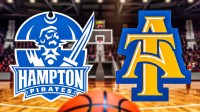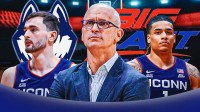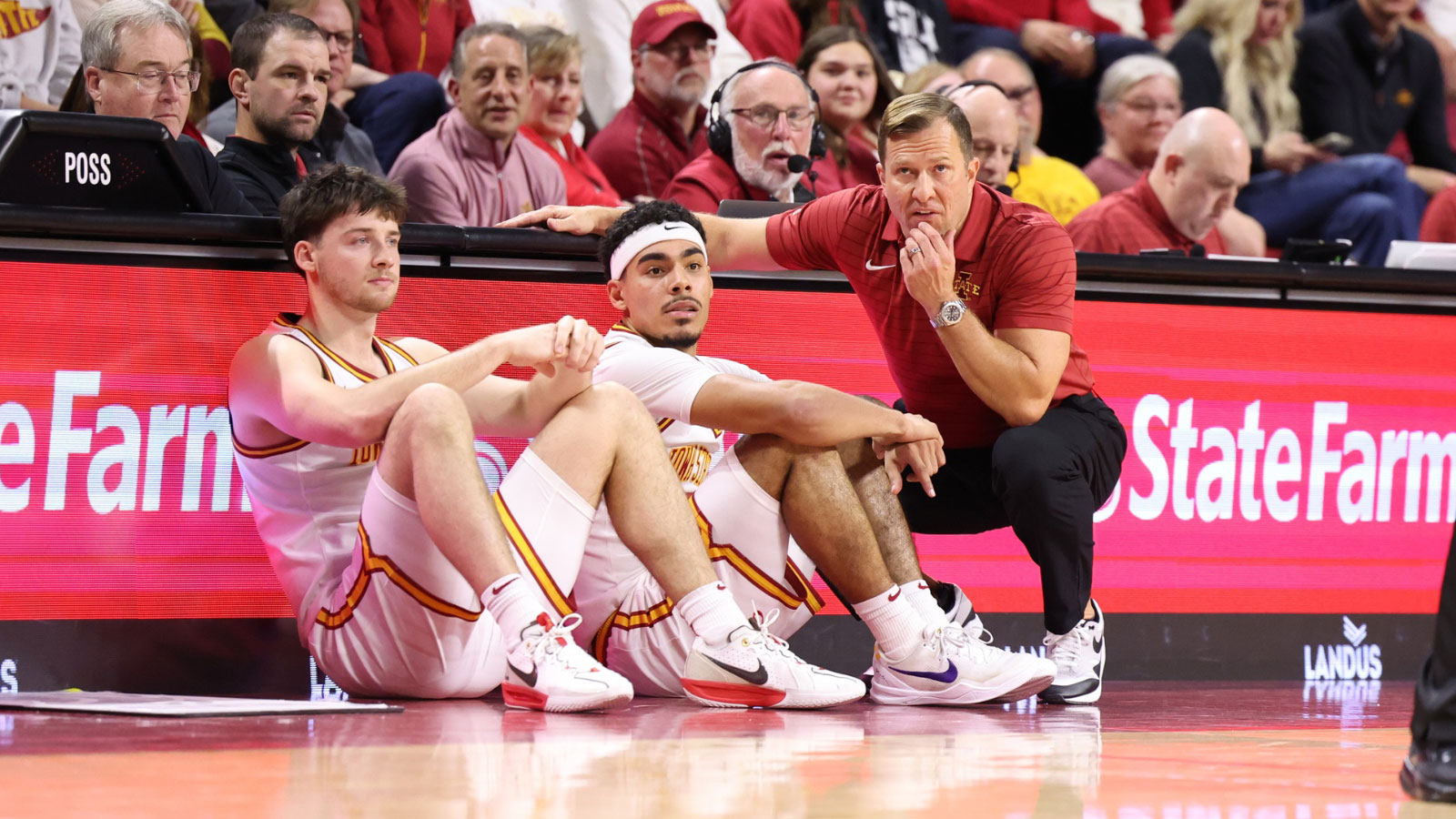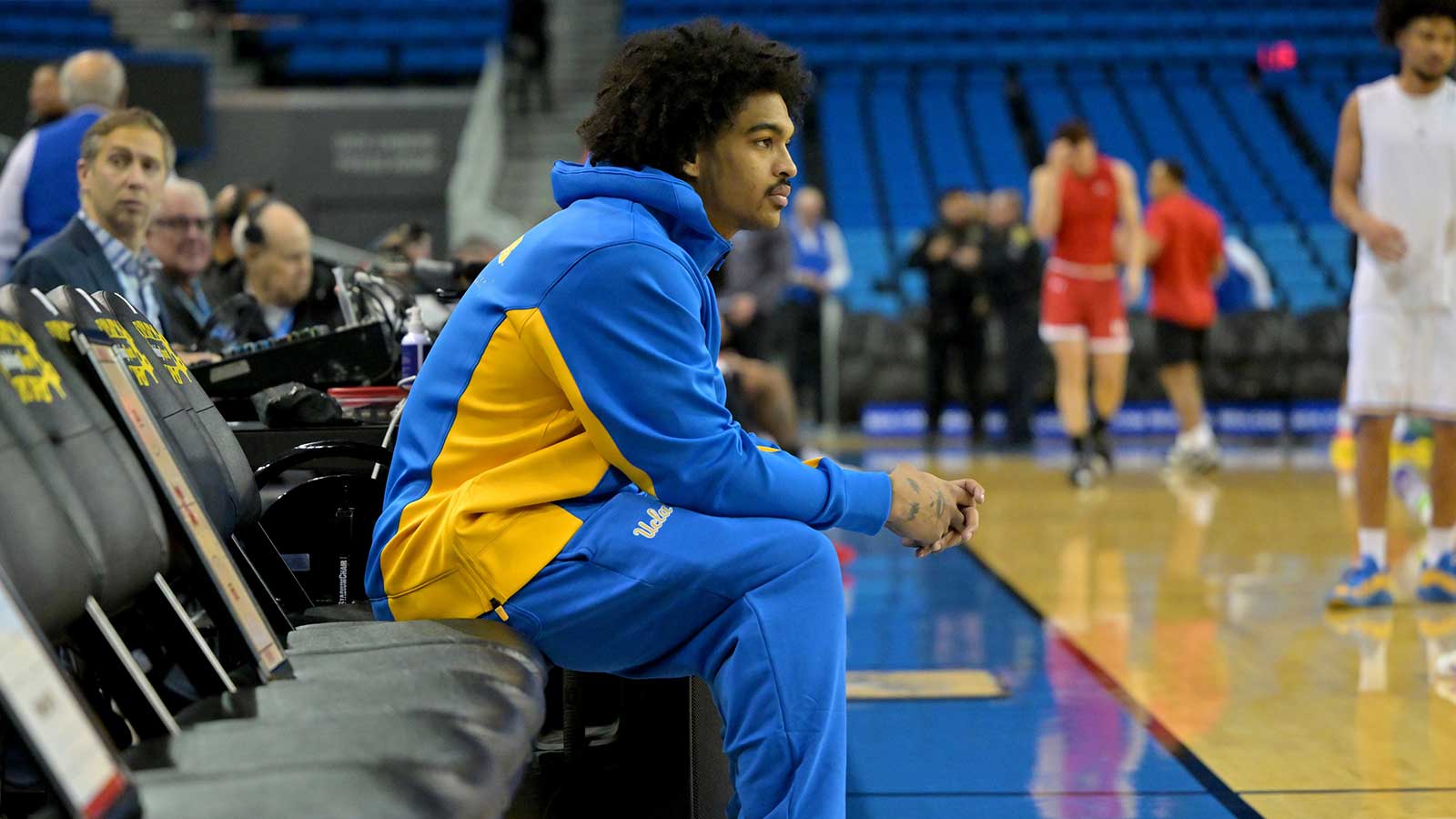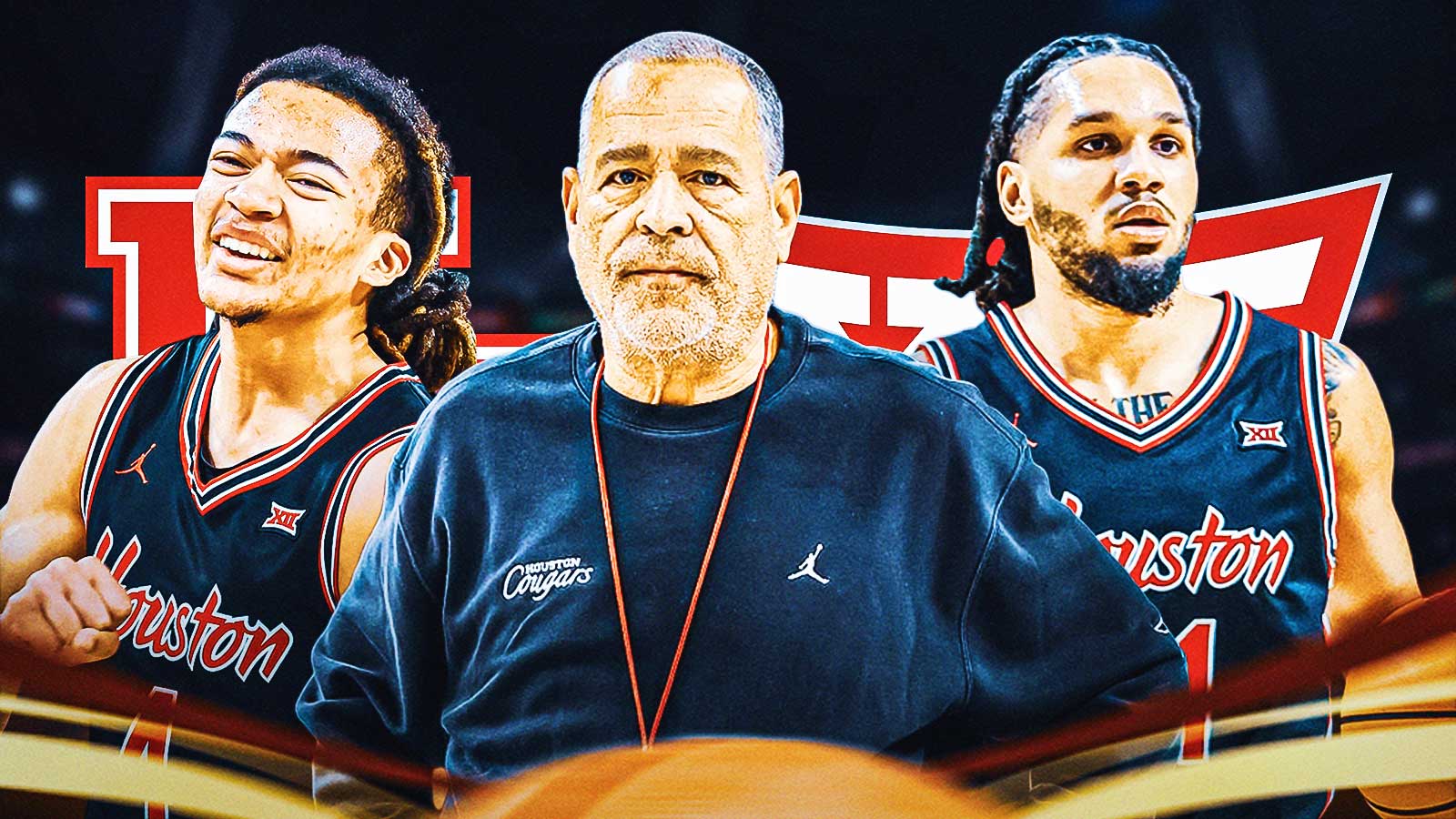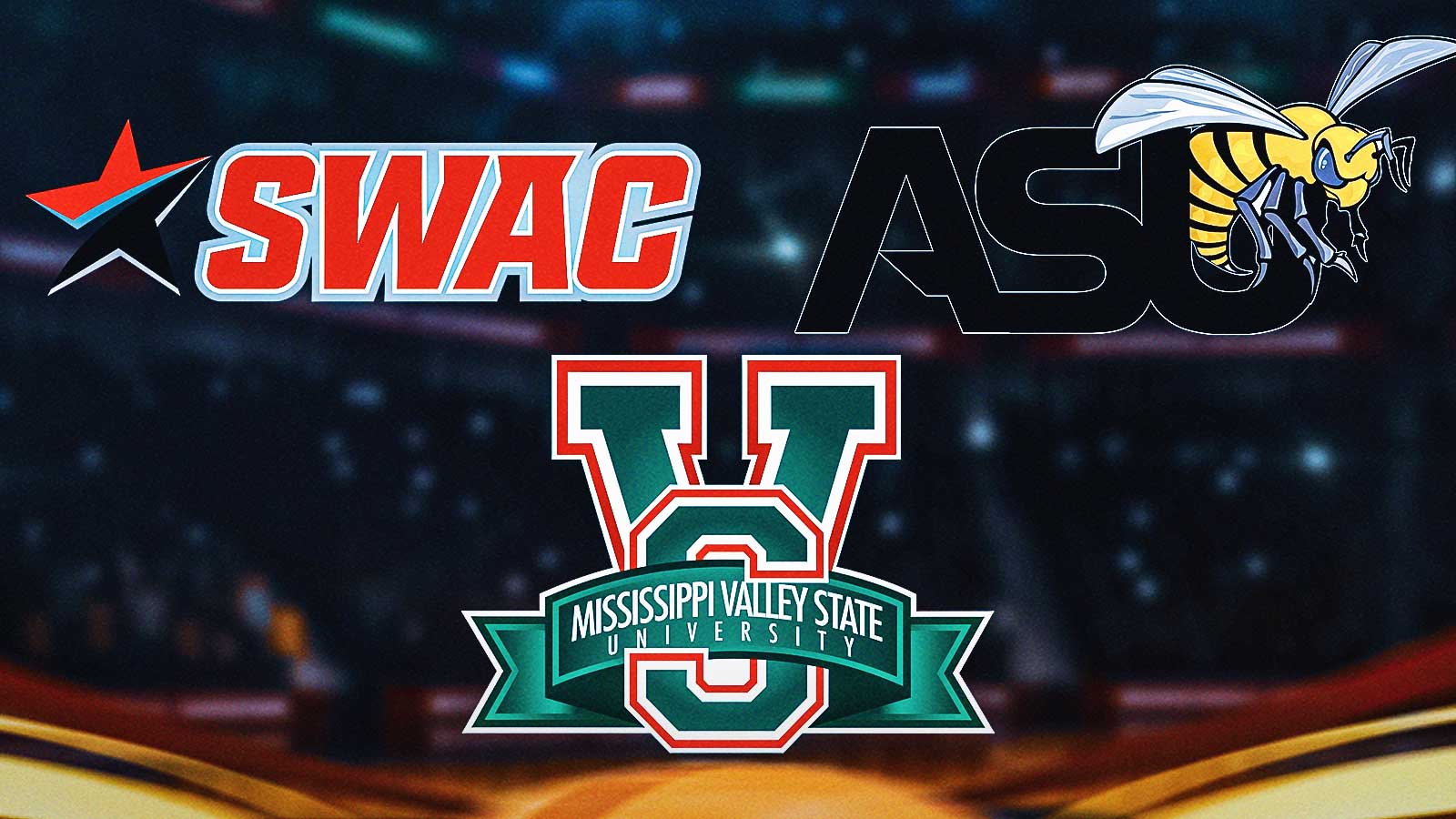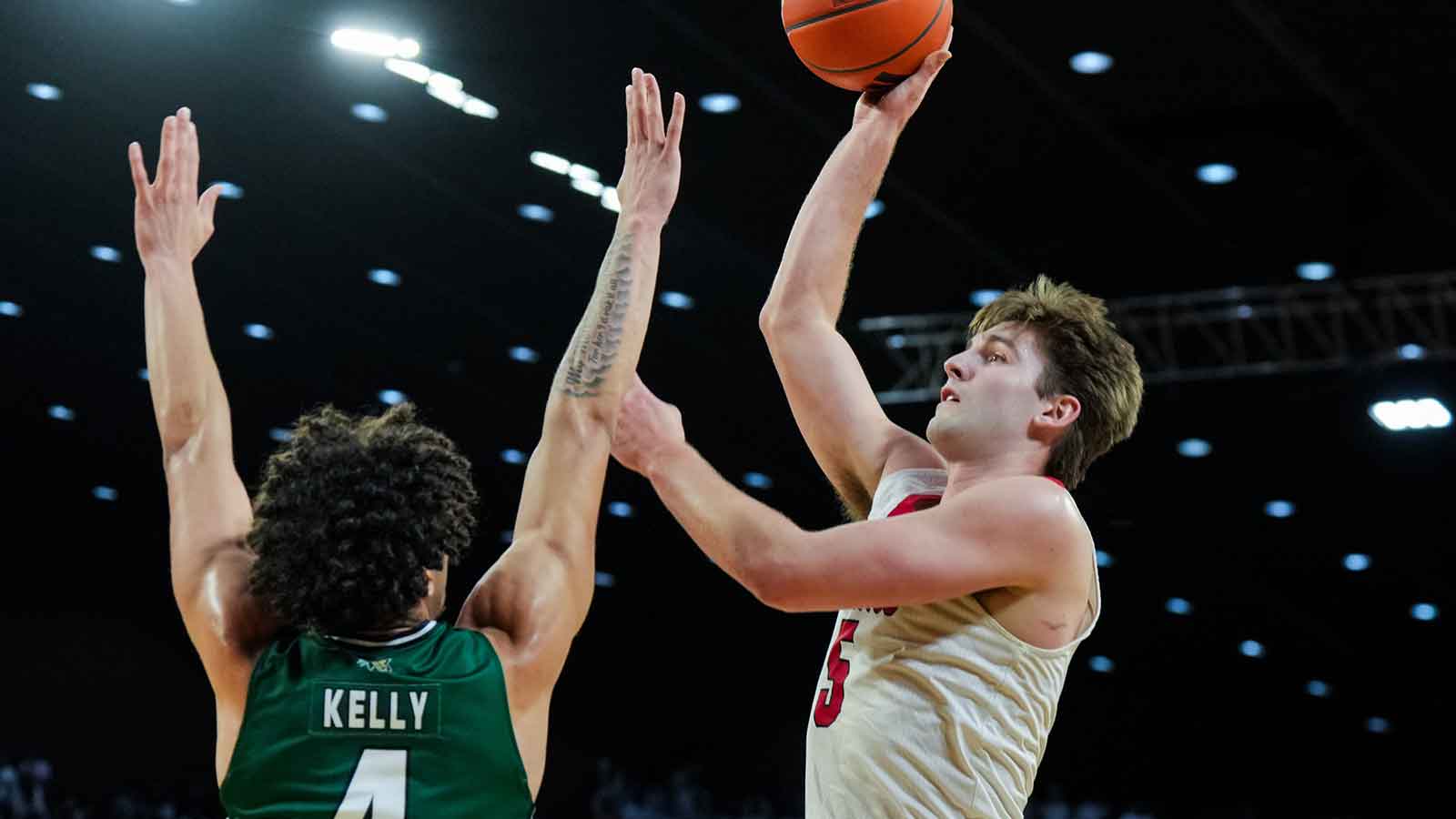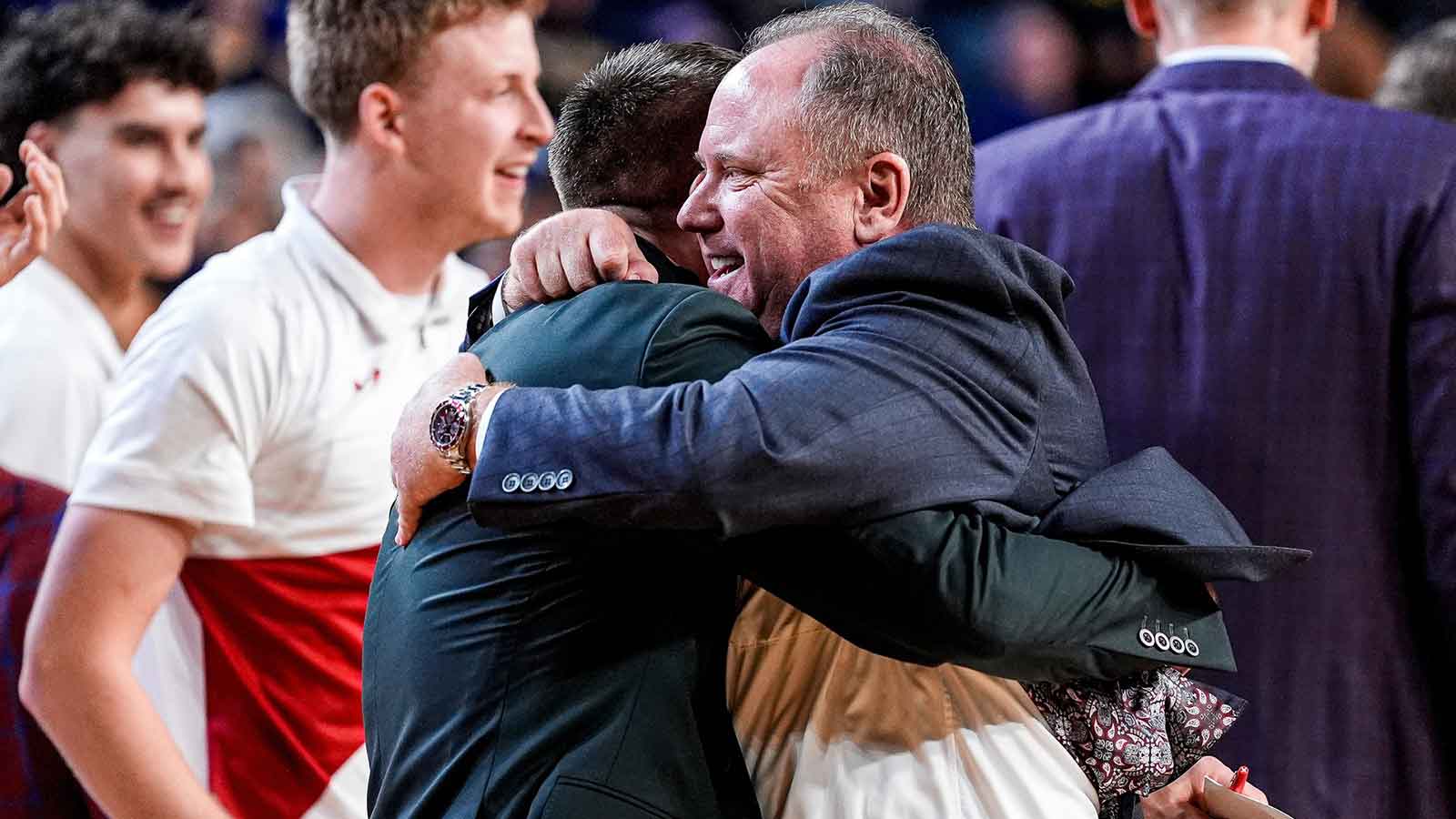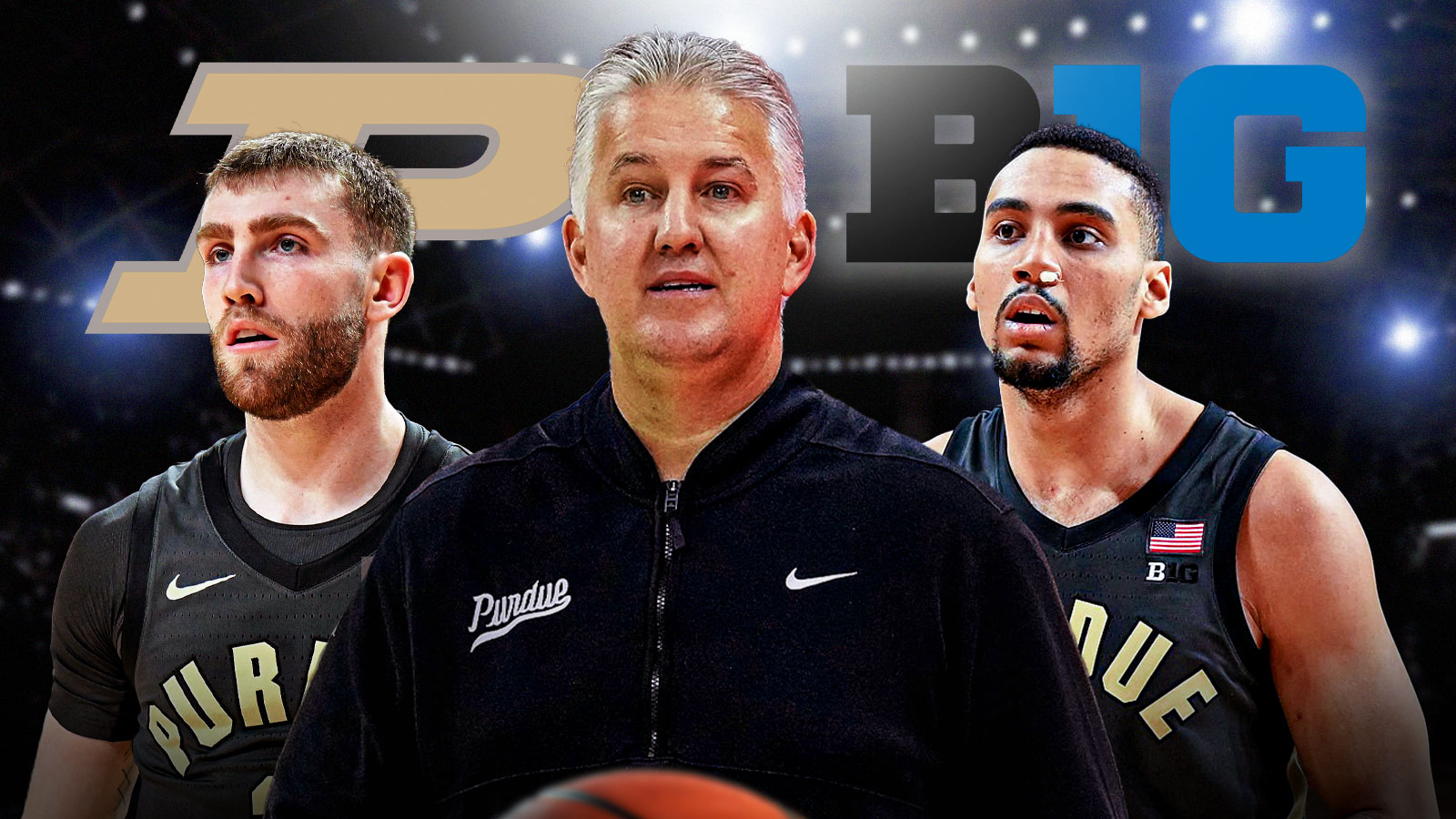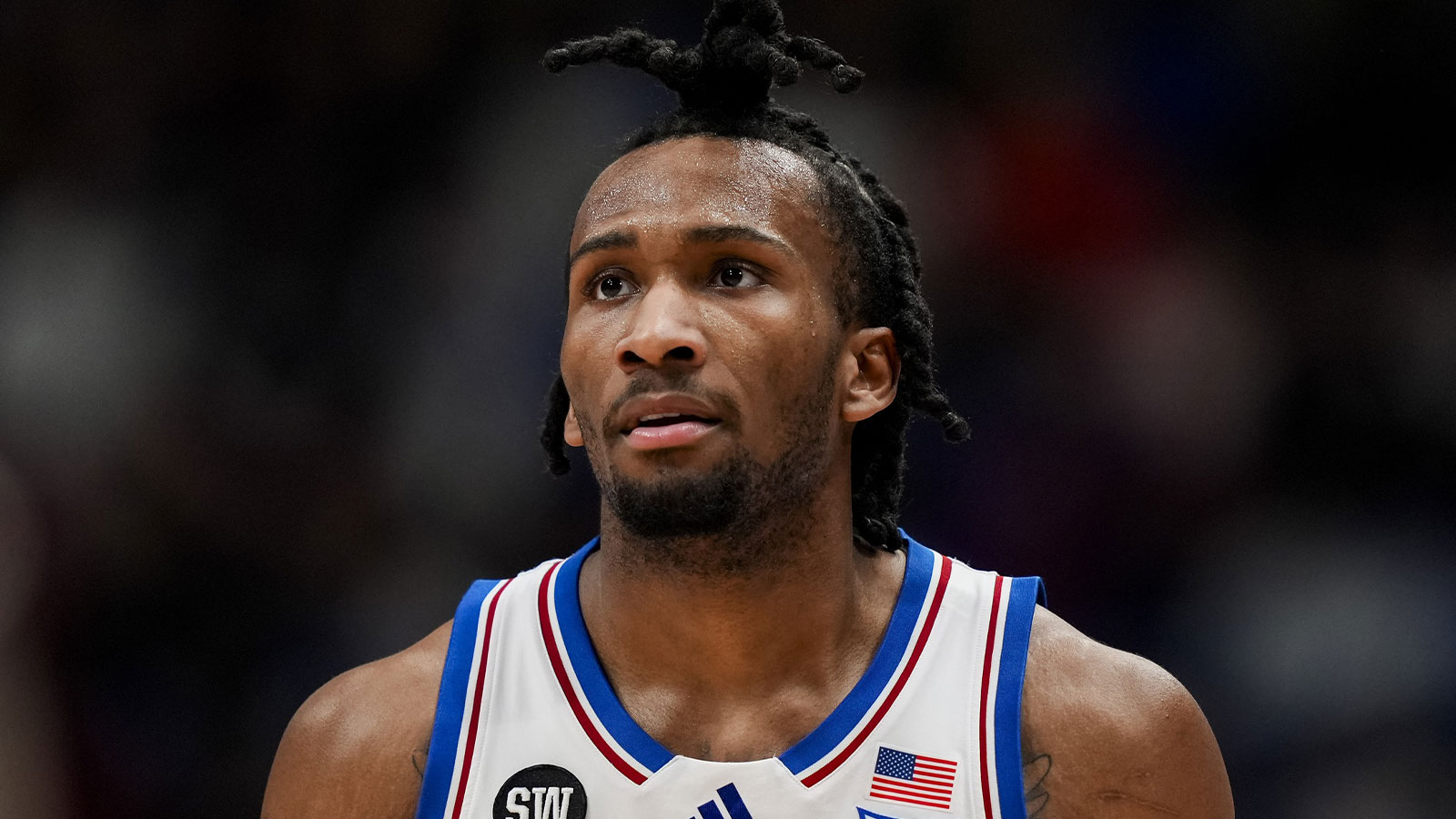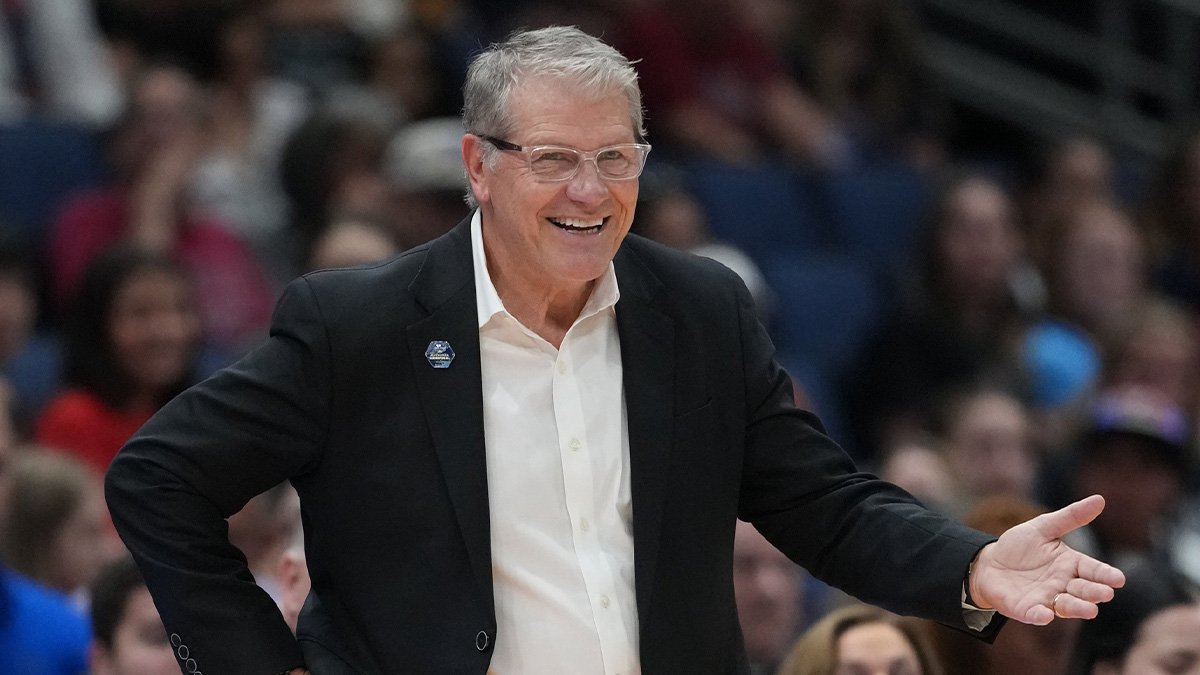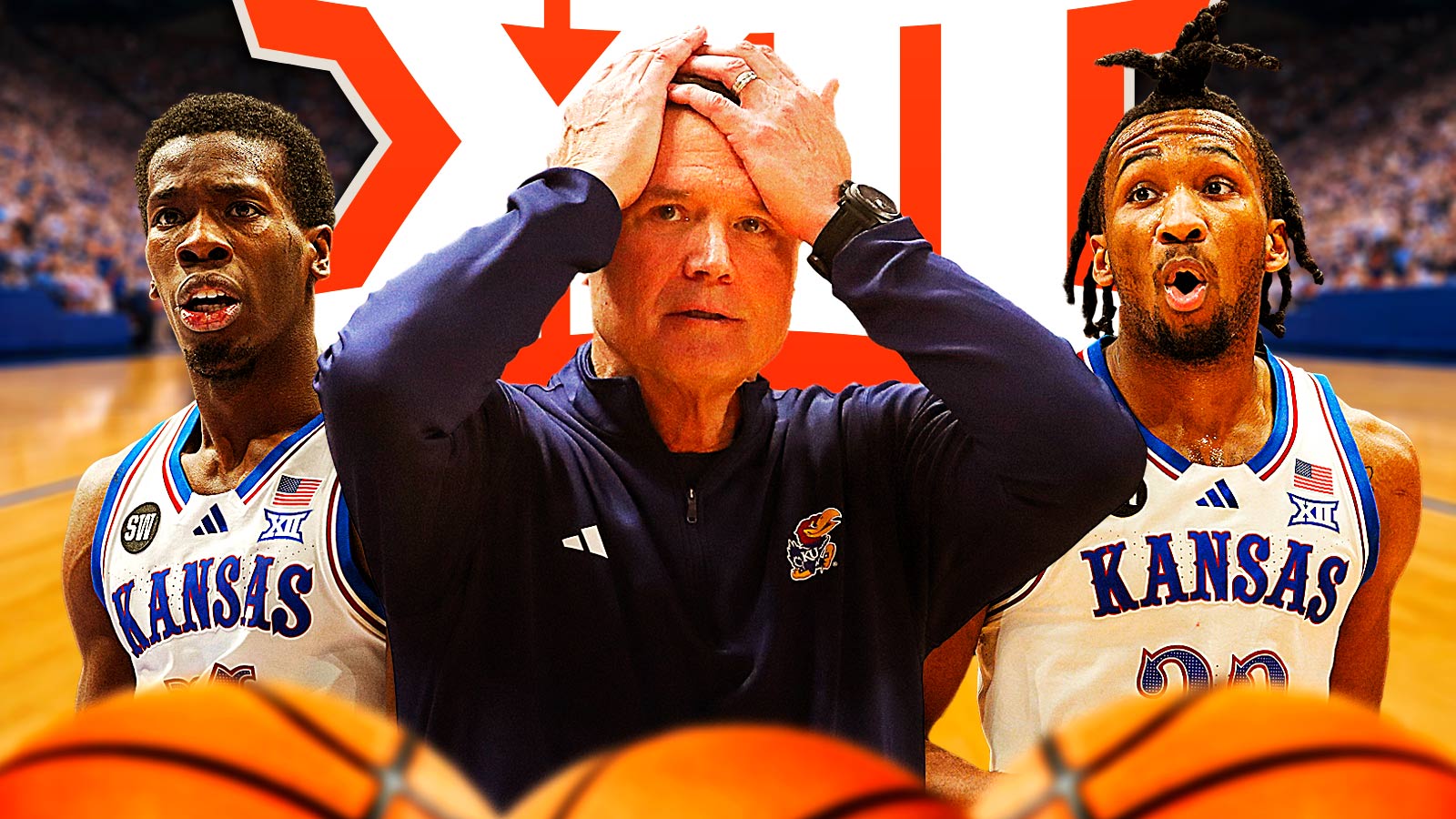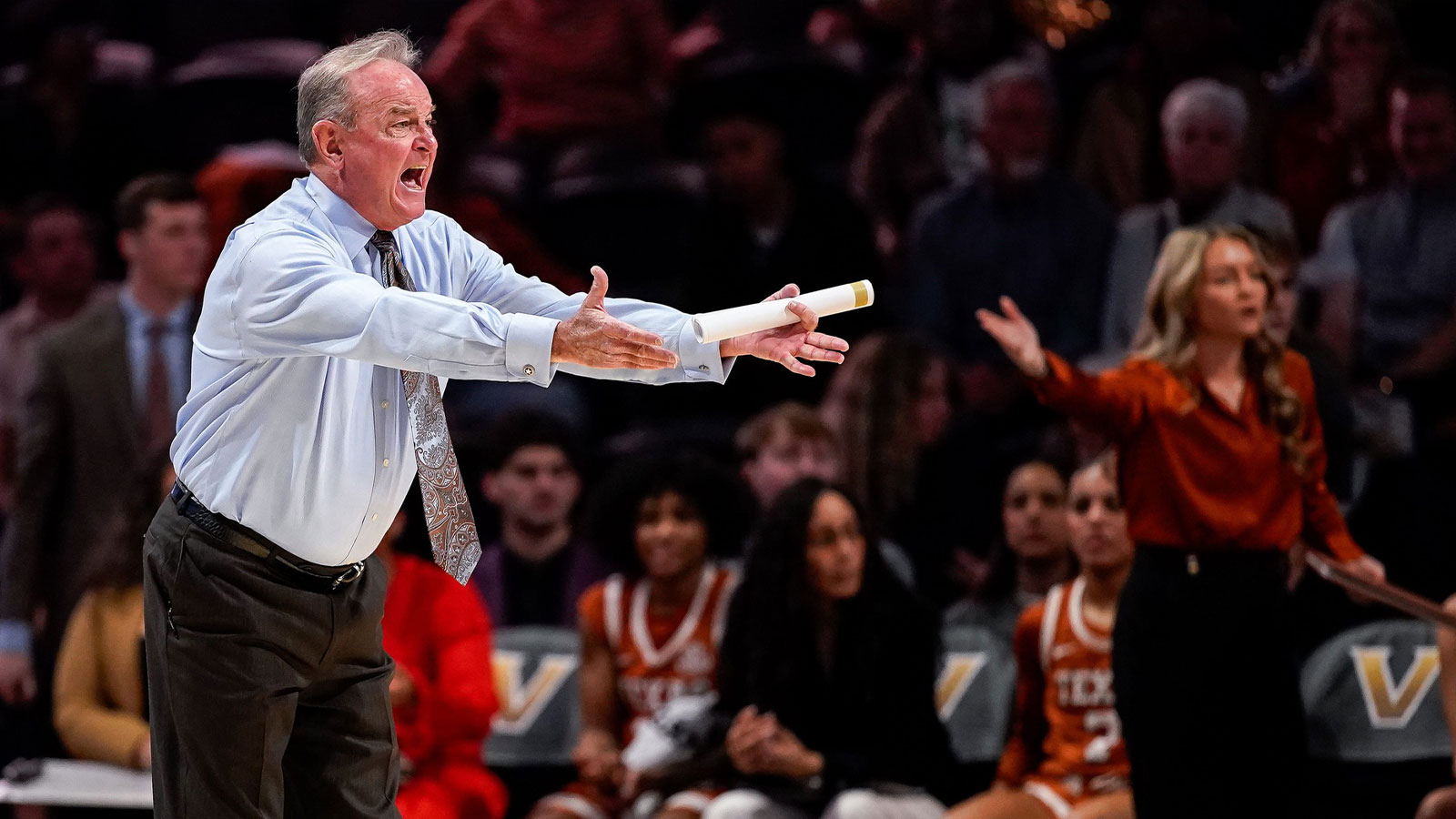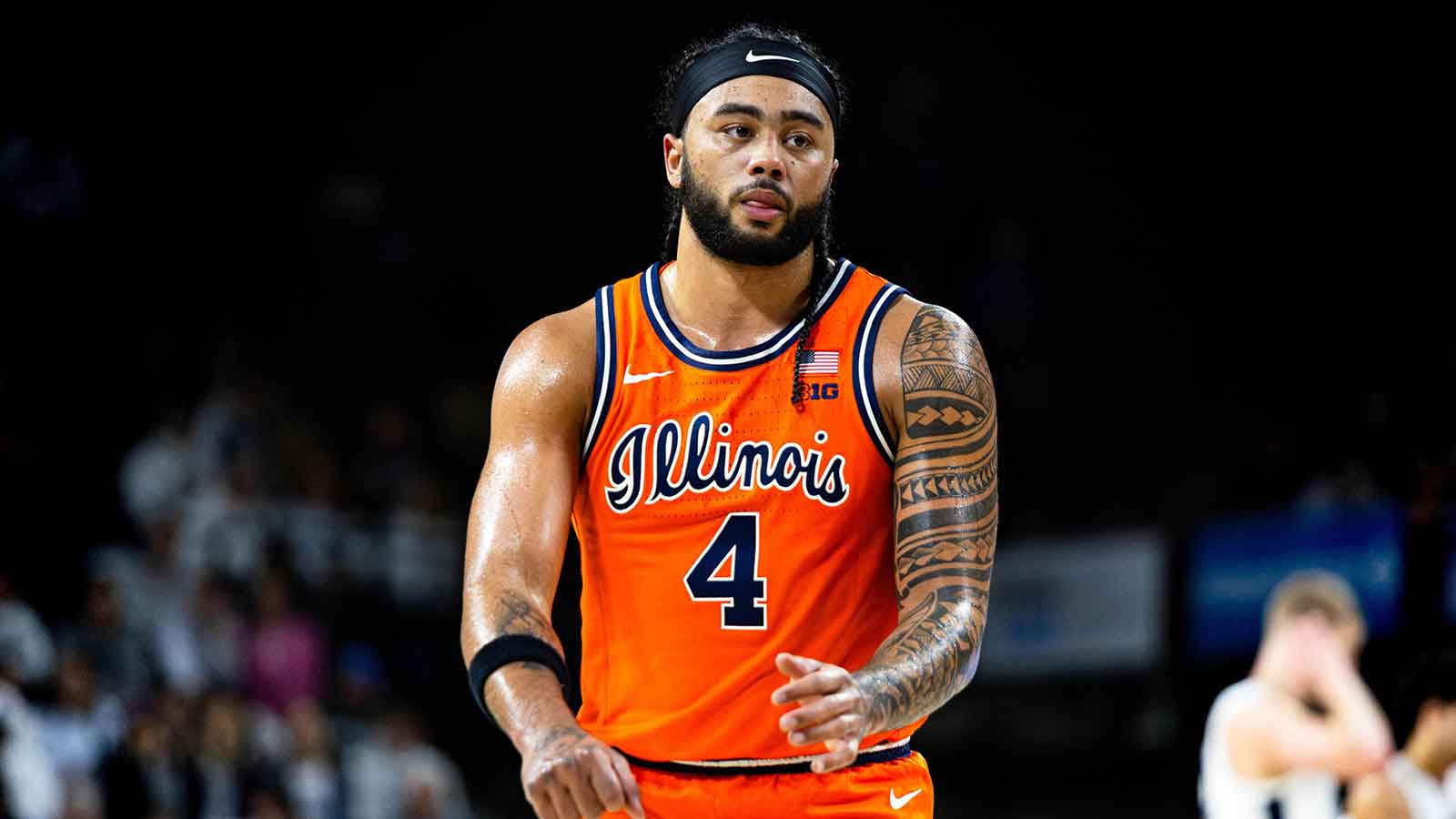With so much focus on NIL and the transfer portal, it is easy to forget that college basketball head coaches are switching teams at a similar rate to the players. 62 Division I programs have already moved on from their previous head coach this offseason — perhaps none more high-profile than John Calipari's move to Arkansas.
Calipari took Kentucky to three Final Fours and a National Championship win, but his lack of postseason victories in recent years led to a mutual departure. And to think that much of this offseason coaching movement began because SMU fired Rob Lanier after a 20-13 season and poached Andy Enfield from USC.
How does Calipari's hiring and other major coaching moves stack up? Find out in our college basketball coaching change grades.
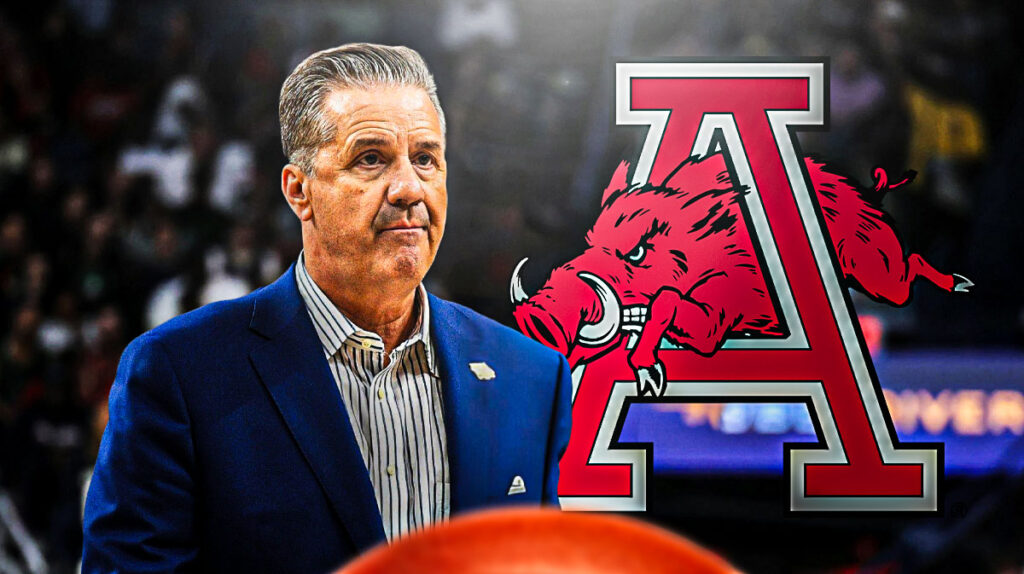
John Calipari (Arkansas)
Six Final Four appearances, three National Championship Games, and a pair of national titles — few if any college basketball coaches can boast that level of success. Yet John Calipari's exit at Kentucky came after the Wildcats won just one NCAA Tournament game in the last five years. Kentucky needed a change and Calipari was also in a position to benefit from a fresh opportunity.
John Calipari's lack of NCAA Tournament success in the last few years overshadows continued regular-season success from the Wildcats and a regular flow of NBA-level talent. John Calipari's ability to build and succeed with a new squad every year makes him invaluable in the modern college basketball landscape.
Grade: A
Dusty May (Michigan)
Before Dusty May arrived at Florida Atlantic, FAU had just one NCAA appearance in 25 seasons of Division I college basketball. May took the Owls to a Final Four in his fifth season in Boca Raton then backed it up with an NCAA Tournament this year while playing a top-40 nonconference schedule.
To build and maintain a deep, talented squad like the one FAU is incredibly rare in this modern era and a testament to May's coaching ability. Dusty May was the top available coach and should take Michigan back to prominence in no time.
Grade: A
Mark Pope (Kentucky)
Mark Pope is a good basketball coach. Is he Kentucky good? That remains to be seen. Pope took BYU to two NCAA Tournaments in five years at BYU (it would have been three if not for COVID) while winning 68% of his games. Critics have focused on what Pope did not achieve at BYU — namely winning a regular season or conference tournament championship in the WCC or winning an NCAA Tournament game.
The program targeted top names like Danny Hurley and Scott Drew, only to settle for Pope. As a UK alum who was the team captain of a Wildcats squad that won a National Championship, Mark Pope will have a love and appreciation from the fans that no other candidate could receive. That can be both a blessing and a curse for a man taking over for a Hall-of-Famer like John Calipari.
Grade: C
Pat Kelsey (Louisville)
As with Mark Pope at Kentucky, Pat Kelsey's hiring at Louisville is underwhelming for a program that targeted Scott Drew and Dusty May. Kelsey took Winthrop to three NCAA Tournaments and was a two-time March Madness participant at Charleston — an impressive resume but not the Final Four experience that Drew and May possess. Again, Kelsey is a good fit for a Louisville program in desperate need of an energy boost. It is still a difficult position for the 48-year-old to inherit.
Grade: C+
Kyle Smith (Stanford)
During every stop in his career, Kyle Smith has punched above his weight. At Columbia, Smith led the Lions to a 20-win season for the first time since 1969-70. He followed it up with three 20-win campaigns at San Francisco in a deep WCC alongside Gonzaga, Saint Mary's, and BYU. In his toughest job yet, Smith ended the second-longest NCAA Tournament drought among power conference teams at Washington State.
Stanford is long removed from its national championship contention days 25 years ago, but the program still brings in considerable basketball talent and has the budget to compete in the ACC. With a coach like Smith who excels at maximizing his resources, Cardinal fans should worry a little less about the program's cross-country conference change.
Grade: A-
Kevin Young (BYU)
In the era of NIL and transfers, bringing in a coach with one year of college basketball coaching experience in his 20-year career is certainly a risk. But that is what BYU did when it gave Phoenix Suns assistant $30 million to run its men's basketball program for the next seven years.
Young's basketball knowledge cannot be questioned. The 42-year-old spent the last eight years of his career as a top assistant for the Philadelphia 76ers and Suns. He interviewed for numerous NBA head-coaching jobs before signing a five-year, $10 million extension with Phoenix — making him the highest-paid assistant coach in the NBA.
Young is also a Mormon and a Salt Lake City native who spent his lone college basketball coaching season at nearby Utah Valley. Hiring coaches with experience in Utah has always been a priority for BYU, but Kevin Young's lack of collegiate experience is a red flag that should not be overlooked.
Grade: C-
Eric Musselman (USC)
If ever there was a coach made for the modern era of college basketball, it is Eric Musselman. Nearly a decade ago at Nevada, Musselman built a transfer-heavy team at Nevada and took the Wolfpack to the Sweet 16. He did the same at Arkansas, leading the Razorbacks to the Elite Eight in back-to-back years with very different squads. Bringing in top talent has never been an issue for USC — winning in March has. Eric Musselman can change that.
Grade: A-
Danny Sprinkle (Washington)
Four years at Montana State and a single season at Utah State is not the typical length of a Power Conference head-coaching resume. But Washington is betting that three straight NCAA Tournament appearances spanning two schools is a strong indictment of Danny Sprinkle's coaching ability. The Huskies felt an upgrade at the helm was needed for the jump to the tougher Big Ten, and Sprinkle has a history of exceeding expectations. The fit is decent; the timing makes this a difficult ask for Sprinkle.
Grade: B-
Darian DeVries (West Virginia)
Many college basketball fans see Drake as a mid-major power. That is far from the case Before Darian DeVries took over, Drake had just one NCAA Tournament appearance in 46 years. The Iowa native took the Bulldogs to three NCAA Tournaments in his six years in Des Moines and now has his eyes set on his first high-major job at West Virginia.
A recent downturn for the WVU program lowers expectations for DeVries, setting him up nicely for long-term success in Morgantown.
Grade: B+
Chris Holtmann (DePaul)
It takes a certain type of person to take the worst Power 6 coaching job in the country. After successful stints with Butler and Ohio State, Chris Holtmann was likely the target of many high-level college basketball programs. Instead, he chose to sign on at a program that won three games last year and has not made the NCAA Tournament since 2004. Holtmann signed on before the Big East Tournament was even over — a sign of dedication that cannot be overlooked. This already puts Holtmann above many other candidates.
Grade: B+
Josh Schertz (Saint Louis)
One of the best mid-major coaches available, many were surprised to see Josh Schertz end up at another mid-major and not a Power 6 school. Despite Saint Louis' recent struggles, the SLU job is one of the best mid-major gigs in the country. The Billikens offer Schertz a significant pay upgrade, a 16,000-seat arena, and a bountiful NIL purse. It is hard to see Josh Schertz staying more than a couple of years in the A-10, but he is the perfect coach to help reset this SLU program.
Grade: B+
Chris Mack (Charleston)
COVID has reshaped the college basketball landscape, and few times have felt its negative effects more than Louisville. The Cardinals were set to be a top-four seed in 2019-20 but have not won more than 13 games in a season since. Chris Mack was the Louisville coach when COVID ended the college basketball season prematurely, though it is difficult to blame Mack for the program's struggles.
Chris Mack coached at Xavier while the Musketeers were still in the Atlantic 10, leading the team to a pair of Sweet Sixteens as a mid-major. Pat Kelsey has established a similar platform for success at Charleston, and Mack is the type of coach who can help the Cougars take the next step.
Grade: A-

